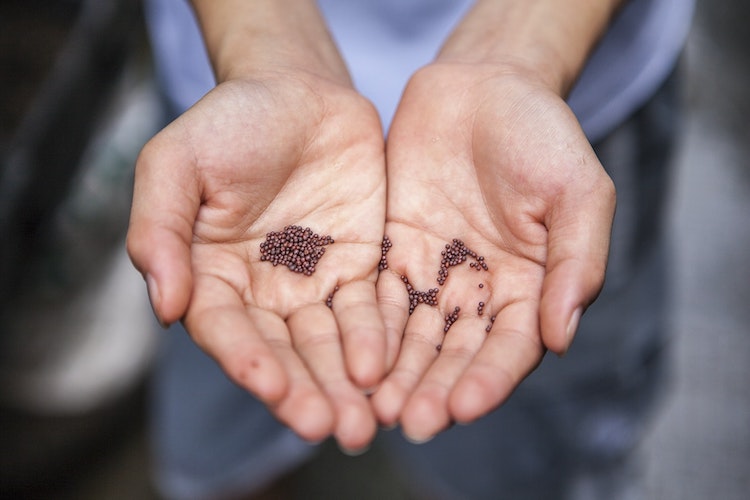Pandemic Sparks Call For End to Big Ag’s Control Of Seeds and Food System
 Kenny Stancil, Children’s Health Defense
Kenny Stancil, Children’s Health Defense
A growing number of people around the world are calling for the public ownership of seeds, which they say is essential for a more democratic and ecologically sound food system. The coronavirus-driven spike in empty supermarket shelves and the continued loss of biodiversity this year sparked a rise in the popularity of saving and swapping seeds and shed more light on the negative consequences of allowing a handful of agrochemical corporations to dominate the global seed trade.
In the U.K., the seed saving movement had been “quietly growing” for awhile, but “from March onwards, when the pandemic hit the U.K., seed producers and seed banks across the country were overwhelmed with demand,” with multiple organizations experiencing a “sharp surge in orders, 600% in some cases,” Alexandra Genova reported in The Guardian.
“People crave connection,” David Price, managing director of the Seed Cooperative, told The Guardian. “They want connection with other people and connection with the planet, and growing and saving seed is a way of getting both.”
Genova noted that while “many British consumers feel disconnected from the processes of food production … seed saving allows everyone to be involved in the food system.” Moreover, advocates say seed saving can contribute to reversing the dramatic decline in the availability of plant varieties that are “richly diverse, well adapted to the soil and local climate, and more resilient to climate change.”
Widget not in any sidebars
The UN Food and Agricultural Organization (FAO) has estimated that since the beginning of the 20th century, roughly 75% of the genetic diversity of agricultural crops and 93% of unique seed varieties have disappeared. This biodiversity loss has been attributed to industrialized agriculture and what Genova called “the big boom in agrochemicals.”
As the FAO has explained, the increasingly commercialized nature of plant breeding has permitted transnational seed and agrochemical corporations — which enjoy so-called plant breeders’ rights that give “patent-like protection to breeders with limited monopoly rights over the production, marketing, and sale of their varieties” — to privatize access to genetic resources taken from countries in the global south.
Seed saving movement calls for seeds to be publicly owned. Empty shelves during the pandemic made clear, allowing huge corporations to “own” seeds is a very bad idea! Power to the People, not corporations. https://t.co/b7v4sE4elx
— B.E.A.T. (@TheBEATNews) December 28, 2020
“If you own the seeds you own the food system,” Schulze told The Guardian. “Access to open-pollinated seeds is the cornerstone of food citizenship because it creates non-market access to growing.”
“I want all local communities or regions to have their own seed bank,” she added, “so everyone knows exactly where to get free seed.”
Originally published by Common Dreams.
Image: Unsplash
Sourced from Waking Times



